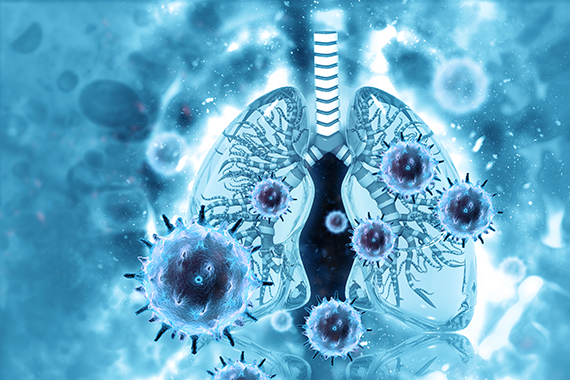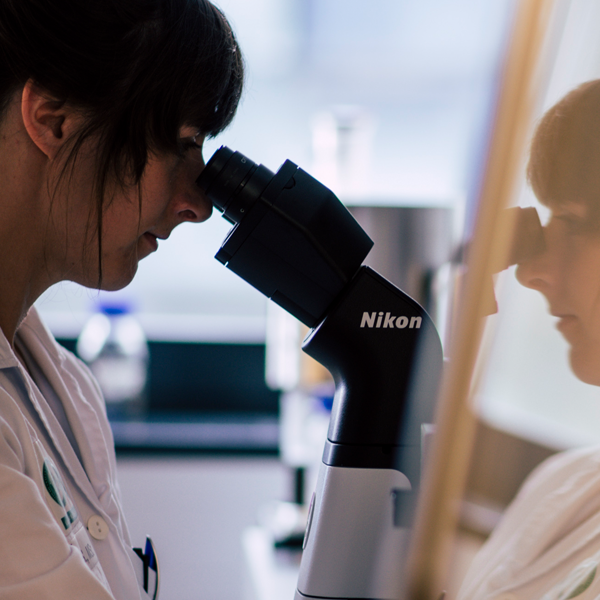-
The University
- Welcome
- Who we are
- Media & PR
- Studying
-
Research
- Profile
- Infrastructure
- Cooperations
- Services
-
Career
- Med Uni Graz as an Employer
- Educational Opportunities
- Work Environment
- Job openings
-
Diagnostics
- Patients
- Referring physicians
-
Health Topics
- Health Infrastructure
Research
Our research interests include metabolism, the digestive tract, the central nervous system and the respiratory tract. We investigate manifestations of inflammatory and oncological disease with the goal of better understanding the causes of disease and thus discovering new therapeutic options. We are also dedicated to the detailed investigation of established drugs in order to expand their potential applications and reduce adverse effects.

Inflammation, autoimmunity and cancer
Our young international team investigates the role of the immune system in tumor diseases, for example lung cancer. Advanced development of immune-based drugs for oncological disease requires the detailed exploration of the immunological environment in the tumor, especially the presence of immunostimulant or immunoinhibitory factors, whose targeted manipulation has recently led to unexpected therapeutic success.
Our research focus is the metabolism of lung cancer cells and certain tumor-promoting immune cells (macrophages). In translational and multidisciplinary projects, we investigate the complex metabolic adaptations that may play a role in the hostile, nutrient-poor microenvironment of solid cancers. With our research we aim to contribute to identifying potential novel targets for lung cancer treatment.
Our research investigates the role of the immune system in maintaining heart health and the acute and chronic immune response that follows injury to heart tissue, such as after a heart attack or myocarditis.
We attempt to decode the molecular basis of myeloid leukemias, especially the pathological changes in RAS oncogenes that are often found with mutations in patients with myeloid leukemia. Employing molecular and cytological methods, disease models and patient specimens, we attempt to make use of our findings in new therapeutic approaches.

Chronic respiratory and pulmonary diseases
Our lab explores new anti-inflammatory therapies for immunological diseases of the lungs and the vascular system. We investigate the mechanisms for how leukocytes enter inflamed tissue and their activation and attempt to identify new targets for active substances.
Our research group analyzes the function of eosinophil granulocytes, a subtype of white blood cells that play an important role in allergies and asthma. Through pharmacological inhibition of these cells, we hope to obtain an effective therapy for a variety of diseases.

Metabolism and the gut
Our multidisciplinary group works on the complex communication pathways between the gut microbiome and the brain that are relevant for digestion, brain function and pathological behavioural changes. In addition, we investigate the influence of genetic and environmental factors on behaviour and neurobiology to uncover novel therapeutic targets for neuropsychiatric disease.
We research the effects of high-density lipoproteins (HDL) on inflammatory reactions and how they interact with immune cells and the endothelium of the blood vessels. Looking at a large number of human diseases, we investigate the role played by the modified anti-inflammatory function of HDL in disease development and therapy.
Our lab is concerned with the role of factors that modulate inflammation in inflammatory bowl disease and how an inflamed mucous membrane with its large number of immune cells and their mediators is involved in the development of cancer. The pharmacological manipulation of these factors might significantly influence the origin of tumors and could be used therapeutically.




